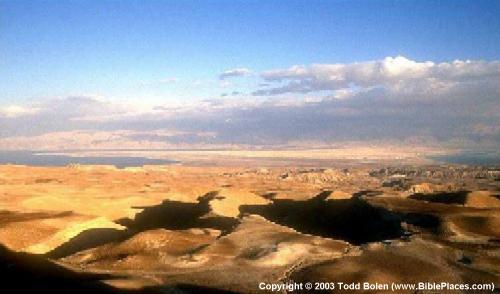Revelation 12:14
Share
Again, we see the sovereignty of God Who provides for her. See commentary concerning God’s sovereignty at Revelation 6:2.
two wings of a great eagle
This phrase speaks of supernatural assistance given by God in a time of human incapability. It describes God’s deliverance of Israel from Egypt by the parting of the Red Sea: “You have seen what I did to the Egyptians, and how I bore you on eagles’ wings and brought you to Myself” (Ex. Ex. 19:4). It also connotes supernatural protection and provision, patterned after the way in which an eagle, when training a youngster to fly, pushes it out of the nest but also flies with it and catches it to bear it upwards again when needed.
He found him in a desert land and in the wasteland, a howling wilderness; He encircled him, He instructed him, He kept him as the apple of His eye. As an eagle stirs up its nest, hovers over its young, spreading out its wings, taking them up, carrying them on its wings, so the LORD alone led him, and there was no foreign god with him. He made him ride in the heights of the earth, that he might eat the produce of the fields; He made him draw honey from the rock, and oil from the flinty rock. (Deu. Deu. 32:10-13)
The woman will be given supernatural assistance in her flight as well as supernatural protection and provision en route and upon arrival at her destination. Her strength shall be renewed so that she will not succumb to natural weariness (Isa. Isa. 40:31). Supernatural intervention had protected the Church from the entire “hour of trial which shall come upon the whole world” (Rev. Rev. 3:10+). Here, supernatural intervention protects the woman in the midst of the last half of the hour when “the LORD comes out of His place to punish the inhabitants of the earth for their iniquity” (Isa. Isa. 26:20-21 cf. Zep. Zep. 2:1-3).Fearfulness and trembling have come upon me, and horror has overwhelmed me. So I said, “Oh, that I had wings like a dove! I would fly away and be at rest. Indeed, I would wander far off, and remain in the wilderness. Selah I would hasten my escape from the windy storm and tempest.” (Ps. Ps. 55:5-8)
fly into the wilderness to her placeIt is her place: indicating a specific location set aside for her protection. It had been previously prepared by God. She will reside there during the last half of The 70th Week of Daniel.
Judean Wilderness and Lisan Peninsula

where she is nourished
She is nourished is τρέφεται [trephetai] , she is being “provided with food.”2 The same term describes how “your heavenly Father feeds” the wild birds (Mtt. Mat. 6:26; Luke Luke 12:24). At the Sheep and Goat Judgment, it is the sheep who fed Jesus’ “brothers” during their time of need. The term can also describe a place of nurturing (Luke Luke 4:16). See commentary on Revelation 12:6.
for a time and times and half a time
This period is also described as “one thousand two hundred and sixty days” (Rev. Rev. 12:6+). It describes the final half of The 70th Week of Daniel. See commentary on Revelation 12:6. See Prophetic Year.
from the presence of the serpent
Presence is προσώπου [prosōpou] , she is protected from the “face, countenance”3 of the serpent. This denotes his inability to access her. It is used “in all kinds of more or less symbolic expressions which, in large part, represent OT usage, and in which the face is often to be taken as the seat of the faculty of seeing.”4 She is hidden from his access, and possibly even from his knowledge.
Notes
1 Copyright © 2003 www.BiblePlaces.com. This image appears by special permission and may not be duplicated for use in derivative works.
2 Frederick William Danker and Walter Bauer, A Greek-English Lexicon of the New Testament and Other Early Christian Literature (Chicago, IL: University of Chicago Press, 2000), 825.
3 Ibid., 720.
4 Ibid.